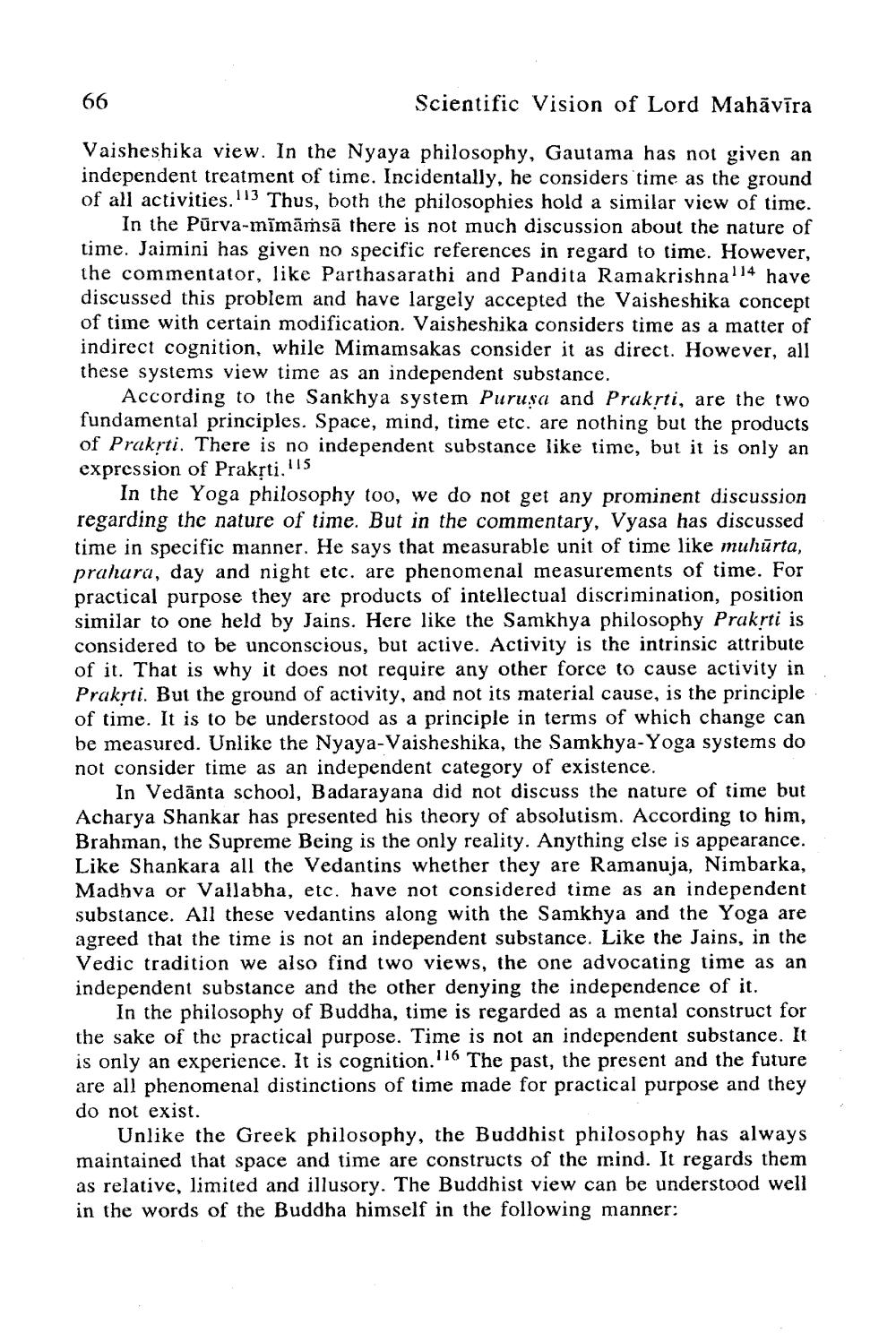________________
Scientific Vision of Lord Mahāvīra
Vaisheshika view. In the Nyaya philosophy, Gautama has not given an independent treatment of time. Incidentally, he considers time as the ground of all activities. 113 Thus, both the philosophies hold a similar view of time.
In the Purva-mimämsä there is not much discussion about the nature of time. Jaimini has given no specific references in regard to time. However, the commentator, like Parthasarathi and Pandita Ramakrishna114 have discussed this problem and have largely accepted the Vaisheshika concept of time with certain modification. Vaisheshika considers time as a matter of indirect cognition, while Mimamsakas consider it as direct. However, all these systems view time as an independent substance.
According to the Sankhya system Puruşa and Prakṛti, are the two fundamental principles. Space, mind, time etc. are nothing but the products of Prakṛti. There is no independent substance like time, but it is only an expression of Prakṛti. 115
In the Yoga philosophy too, we do not get any prominent discussion regarding the nature of time. But in the commentary, Vyasa has discussed time in specific manner. He says that measurable unit of time like muhurta, prahara, day and night etc. are phenomenal measurements of time. For practical purpose they are products of intellectual discrimination, position similar to one held by Jains. Here like the Samkhya philosophy Prakṛti is considered to be unconscious, but active. Activity is the intrinsic attribute of it. That is why it does not require any other force to cause activity in Prakrti. But the ground of activity, and not its material cause, is the principle of time. It is to be understood as a principle in terms of which change can be measured. Unlike the Nyaya-Vaisheshika, the Samkhya-Yoga systems do not consider time as an independent category of existence.
In Vedanta school, Badarayana did not discuss the nature of time but Acharya Shankar has presented his theory of absolutism. According to him, Brahman, the Supreme Being is the only reality. Anything else is appearance. Like Shankara all the Vedantins whether they are Ramanuja, Nimbarka, Madhva or Vallabha, etc. have not considered time as an independent substance. All these vedantins along with the Samkhya and the Yoga are agreed that the time is not an independent substance. Like the Jains, in the Vedic tradition we also find two views, the one advocating time as an independent substance and the other denying the independence of it.
In the philosophy of Buddha, time is regarded as a mental construct for the sake of the practical purpose. Time is not an independent substance. It is only an experience. It is cognition. 116 The past, the present and the future are all phenomenal distinctions of time made for practical purpose and they do not exist.
66
Unlike the Greek philosophy, the Buddhist philosophy has always maintained that space and time are constructs of the mind. It regards them as relative, limited and illusory. The Buddhist view can be understood well in the words of the Buddha himself in the following manner:




